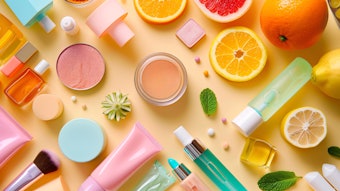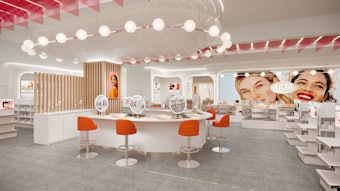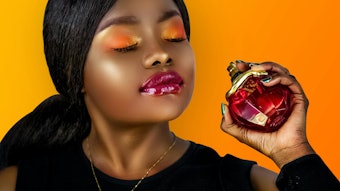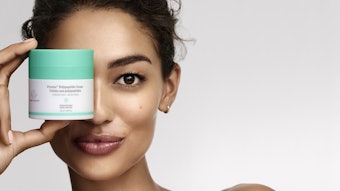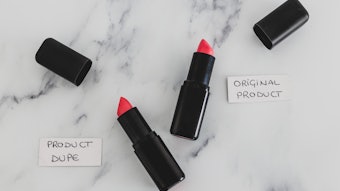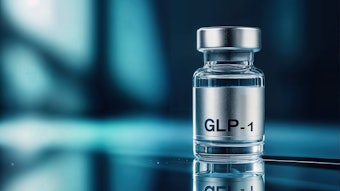In July 2013, Brasil Beauté took over ownership of the Brazilian personal care chain Agua de Cheiro, one of the Brazil’s largest retailers of fragrance, color cosmetics, skin care and body care products. The beauty retailer currently operates over 800 franchise stores stocking its proprietary brands throughout Brazil.
Led by three noted beauty executives and industry veterans, Brasil Beauté brought a strong background in personal care, luxury goods and both international and Brazilian retailing to the transaction: Paul Block, former chairman and president of Revlon International, is serving as executive chairman and CEO of Agua de Cheiro, and Renaud Dutreil, former chairman of LVMH America, and Joe Lago, former partner of Ellus, joined Block and Henrique Pinto, owner of the Globalbras Group, as the owners of the company and members of the board. The new owners of the 36-year-old Brazilian retailer are now set to execute a forward-looking overhauling strategy, consisting of the launch of famous global brands to be manufactured within Brazil, new exclusive Agua brands designed for the contemporary consumer, and redesigned stores for a more enjoyable, educational and rewarding shopping experience.
GCI magazine interviewed Block about his motivations behind the transaction, what changes and developments they are looking to make, and what lies ahead for beauty in Brazil.
GCI magazine: Why did you decide to purchase the Agua de Cheiro beauty store chain?
Paul Block: We believe that we can transform Agua de Cheiro, which is already the second-largest franchise cosmetic store network in Brazil, into a service-oriented, contemporary retailer. We will be providing Brazilian customers with international brands and high-quality Agua products produced in Brazil. Our products will be sold at affordable prices to consumers who have aspired to purchase famous brands, the latest in cutting-edge formulas, innovative dispensing systems sold through retail stores with well-trained beauty advisors.
GCI: Where does the store fit in in terms of beauty retailing in Brazil—mass, prestige, masstige? Is this a placement you plan on continuing?
Block: We do not segment the market this way. We believe that today, it is possible to attract all kind of consumers with a good value proposition. We will provide high quality products at a reasonable price, good service and a rhythm of innovation, which keeps the consumer loyal.
GCI: What makes the beauty market in Brazil so appealing currently?
Block: Brazil is already a very large personal care market—the third-largest in the world—with the highest per capita consumption of fragrance. Color cosmetics and skin care are growing very rapidly. Over the past several years, as the economy continues to grow more rapidly than most major countries, consumers are migrating away from historical door-to-door distribution to retail stores. We believe that there is an opportunity to provide these consumers with a diverse range of exciting products at affordable prices, innovation at retail and well-trained beauty consultants.
GCI: How does the Brazilian beauty market differ from the U.S. beauty market?
Block: Distribution is one of the major differences. In the U.S., department stores have a key role. In Brazil, door-to-door remains a mainstream distribution channel accounting for approximately 50% of all beauty product sales.
Consumption patterns are different. Fragrance consumption is extraordinarily high relative to the U.S. and all other major markets. The internationalization of the U.S. market is more pronounced due to a different tax system. Imported products are prohibitively expensive in Brazil, which is the basis for one of our core strategies: manufacture global brands in Brazil.
However, there is commonality in one major aspect. All consumers in all markets have a desire for the right price/quality mix, the demand for service, and innovative, quality products.
GCI: What do you feel are the biggest opportunities for beauty in Brazil?
Block: Retail, for sure, since retail allows a unique experience and a strong connection between the brand and the consumer. International brands should also benefit from the globalization of the Brazilian consumption habits. We feel that Agua de Cheiro is in a unique position because of our ability to provide domestic Brazilian manufacturing to the most exacting standards meeting the expectations not only of the consumers but also our global brand partners.
GCI: What unique variations in shopping habits do Brazilian beauty consumers display?
Block: Brazilian consumers have historically preferred the door-to-door distribution model. As consumers have demonstrated a desire to move away from in-home shopping to retail shopping the impact on the beauty industry has been—and will continue to be—profound. In the past six years, shopping mall revenue has increased by +116%, from R$45.5 billion to R$108 billion. There is every indication that this growth rate will continue as the population moves from “C” economic class to “B” economic class and new malls are opening every day.
GCI: Is there a preference over local brands over global brands?
Block: Brazilian consumers love the Brazilian brands, which express their cultural values and provide excellent products at a good price. They also aspire to join with the U.S. and European consumers in purchasing famous international brands.
GCI: What recommendations/advice would you have for beauty brands who are trying to break into the Brazilian marketplace?
Block: I would recommend that all marketers listen to the Brazilian consumer and understand the uniqueness of Brazil. Brazil is a fabulous market as much as it is a difficult market to enter. Pricing and distribution, in addition to quality and marketing positioning, are the keys to success in Brazil. We as investors and operators are opening the door for many international companies to enter the Brazilian market with the confidence of working with experienced beauty product marketers who will provide quality distribution and quality products at affordable prices.
